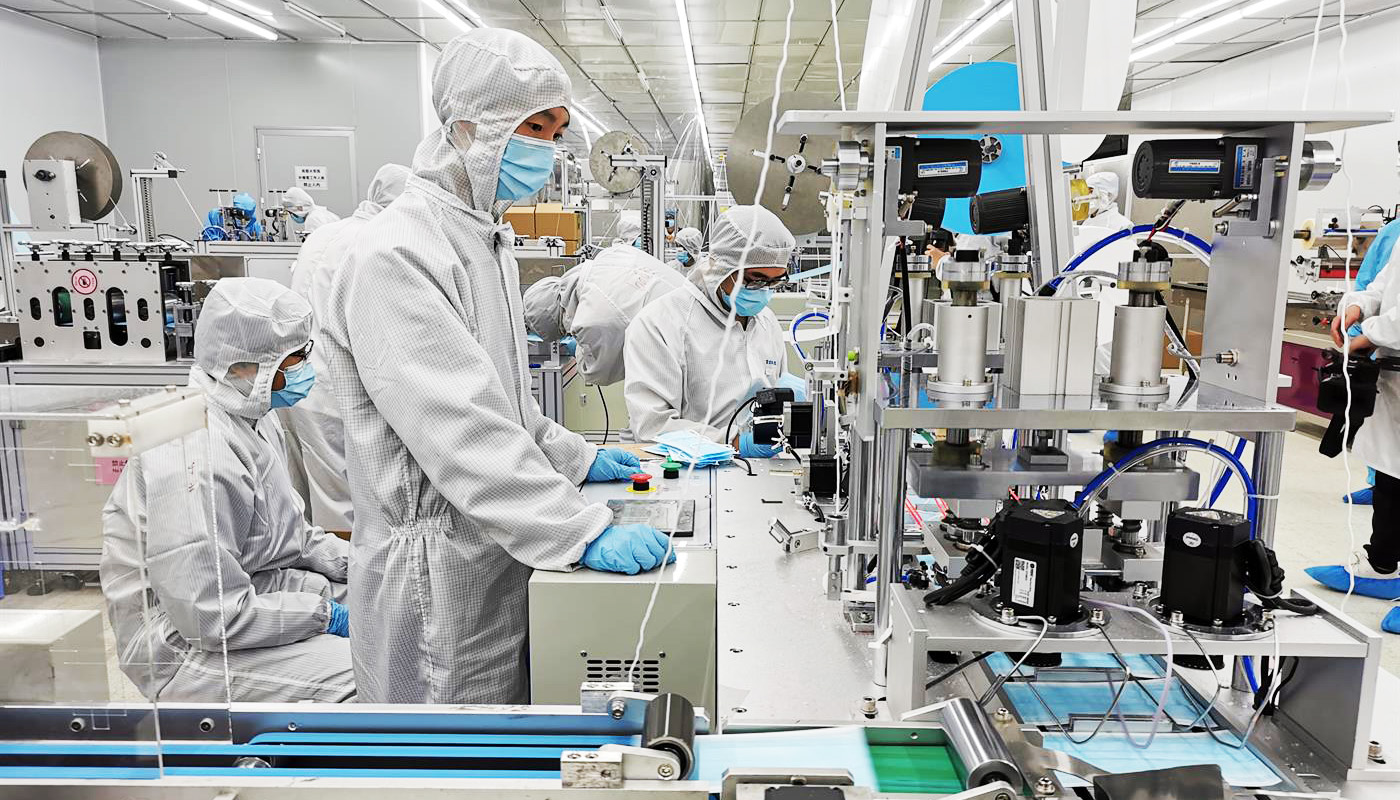
As the Covid-19 epidemic is gradually brought under control, the progress of Taiwan-funded enterprises in various parts of China to resume work and resume production has accelerated. According to statistics from the Taiwan Affairs Office of various regions, there are about 26,000 Taiwanese-funded enterprises returning to work in 11 provinces and municipalities, among which Guangdong, Shanghai, Zhejiang, and Sichuan have a higher rate of returning to work, more than 50%.
As of the beginning of March, Guangdong, Jiangsu, Fujian, Zhejiang, Shandong, Sichuan, Henan, Anhui, Jiangxi and other 9 provinces, as well as Chongqing, Shanghai.Had a total of 26,000 Taiwanese enterprises. The number of Taiwan enterprises in these provinces and cities accounts for more than 85% of the total number of Taiwan enterprises in China. From the perspective of enterprise scale, industrial enterprises above designated size (with an annual turnover of more than 20 million yuan) have a higher rate of return to work, and industrial enterprises above designated size in Jiangsu, Fujian, and Anhui have a return rate of approximately 90%.
From the perspective of the industry, Taiwanese companies producing medical and anti-epidemic materials have resumed work and production. For example, Delta's Jiangsu Wujiang factory, which produces power supplies for atomizers, Xiamen Bluestar, Hangzhou, which produces masks, and Huaying, which produces outdoor protective clothing Materials, such as Wenzhou Dongyi Optics and Xiamen Mobi Optics, which produce goggles. Most of the Taiwanese enterprises involved in the protection of the supply of civilian resources have not stopped production or resumed production. For example, food production Taiwanese enterprises such as Master Kong, Want-want, Uni-President have resumed production. During the Spring Festival, the Huayang Electric Power Industry in Fujian maintained stable operation.
In terms of manufacturing, key Taiwan-funded projects such as integrated circuits are currently operating normally. Nanjing TSMC, Xiamen Lianxin, Hefei Jinghe, etc. have a relatively high degree of automated production, and their production capacity is basically maintained. Labor-intensive Taiwanese companies such as 3CEMS, Quanta, Pegatron, Compal, etc. have resumed work or continued production, but employee turnover is still low. Petrochemical companies such as Taiwang and Far East have basically maintained operation or resumed operations during the Spring Festival.
The service industry was greatly affected by the epidemic, and the number of resumption of work was small. Most of the Taiwanese enterprises engaged in tourism, catering, accommodation, trade, culture and sports have not resumed work. Some Taiwanese enterprises have adopted flexible methods such as online office operations to actively develop online businesses to reduce losses. Taiwan companies in the financial industry are highly dependent on offline business and are affected by the epidemic.
It is understood that since the outbreak of the new crown pneumonia epidemic, under the guidance of the Taiwan Affairs Office of the State Council, the Taiwan Affairs Offices around the country have adopted a series of proactive approaches in assisting Taiwanese enterprises to resume work and resume production. According to production and operation conditions, relevant policies have been issued to help Taiwanese enterprises enjoy the same policies and measures to support local enterprises' resumption of production and work, and to coordinate and resolve practical difficulties such as epidemic prevention supplies, labor difficulties, financial support, supply chain and logistics.









